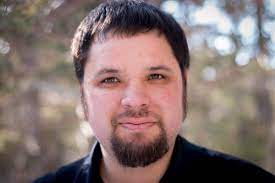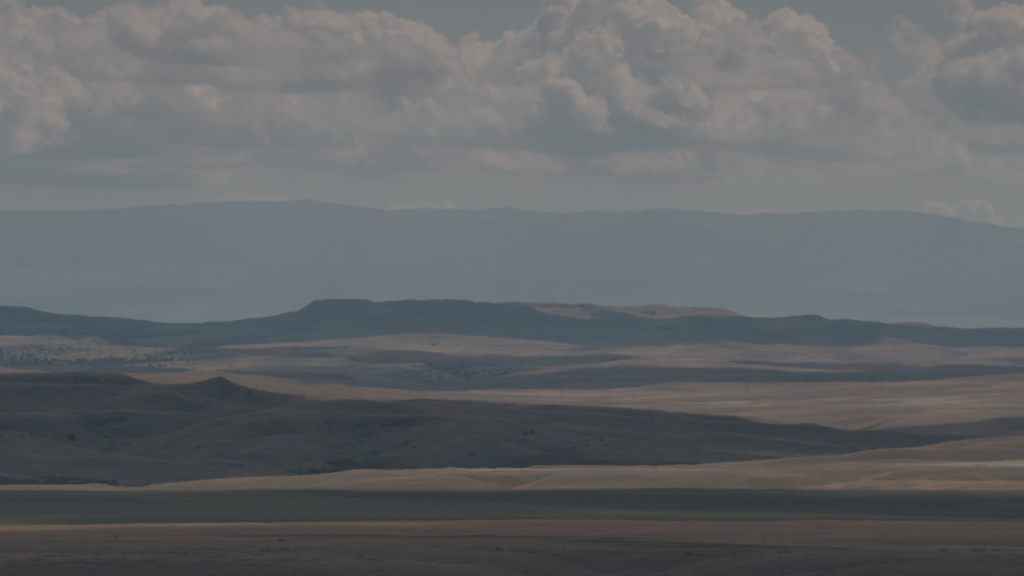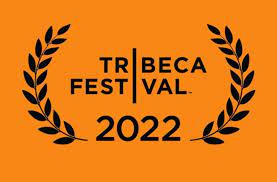Filmmaker 5 with Jesse Short Bull and Laura Tomaselli: Lakota Nation vs. United States

The land known as the Black Hills is the birthplace of the Očéti Šakówiŋ First Nations people–the Lakota and Dakota of the Great Sioux Nation. From the beginnings of the colonization of North America, the sacred land has been the site of conflict. The documentary film Lakota Nation vs. United States is a testament to the survival and indomitable spirit of an exploited and brutalized people and their connection to their sacred land.
Written and narrated by acclaimed Oglala poet Layli Long Soldier and co-directed by Jesse Short Bull and Laura Tomaselli, Lakota Nation vs. United States is showing in New York City as part of the 2022 Tribeca Festival.
Our filmmaker 5 with Jesse Short Bull and Laura Tomaselli follows.
Filmmaker 5.1: As co-directors of Lakota Nation vs. United States how did your individual perspectives come together in your approach to telling this story?

Laura Tomaselli: For me, the perspective I have is of someone who cared a lot about this, who didn’t know a lot about this, but had a good sense of, I think, what most Americans kind of know. We all have murky ideas of these historical atrocities.
I had a POV on how to string this together in terms of what things we do know and what we don’t. My understanding was a view of what most people know about; everything else I took from Jesse.

Jesse Short Bull: I trust whatever creative forces come at play when these sorts of things take off. Because for whatever reason, I believe that Laura and everybody that was involved was supposed to be involved. We seem to really work well together, and it’s just been really a blessing in itself. With this type of story, you have to bring a really good intention to it.
From my perspective—a Lakota perspective—filmmaking is not just like a tool of education or entertainment. There’s also what we would call a medicine that’s embedded in this whole process. And so, what that means is if you just let your spirit guide you as you go through this process, things will fall into place. You will meet when you need to meet, you will get things done the way that they’re supposed to be done, and then just trust that process.
Filmmaker 5.2: This film feels particularly relevant in an era of misinformation in its assessment of over 175 years of propaganda against the Lakota people. What does it have to say about the power of “fake news?”
Jesse Short Bull: What I would say is we all were in this period of asking what is truth? It’s like, you can almost throw any mud at the wall and, as long as it sticks, it doesn’t really matter. I’m coming from the Lakota perspective that we have to recognize the times that we’re in. I noticed that a lot of people are kind of searching for alternatives to how they live their lives and what’s truth to them and what’s meaningful to them.
In the Lakota culture personal truth is considered a holy. That quest for somebody to find their own truth is a very special thing. Things like fake news are kind of scary. But when it comes to change, you’re just going to have to have trust. And at the end of the day, become really compassionate and treat people good. I know that’s hard given hustle and bustle world that we live in. But if you can really treat people good, you can kind of find your way through all these tricky things about what is true.
Laura Tomaselli: I’d like to offer another perspective. In terms of propaganda, it makes me think of our interview with Nick Estes in which we have underneath a Hollywood montage. To me, that was like a funny fake news propaganda thing—putting together that cinema section and talking about how our perception in Hollywood movies is Native Americans attacking these poor settlers, right? Even talking about that, for me, part of this movie is trying to flip that narrative. Taking back a lot of those landscapes and playing with Western film ideas, but then flopping the context, was a fun kind of spin.
Filmmaker 5.3: How do you hope this film stands up to the well-known Western films of classic cinema?
Laura Tomaselli: I feel like the movie is a funny combination of genres. It’s like a Western but then it’s like a bit of a legal thriller. We didn’t want to make a standard documentary delivering footage of exactly what we’re talking about. Playing with genres was a way to keep it kind of fun.

Jesse Short Bull: My dad, my father as a Lakota member, grew up in the 1950s. I remember Shane was the first big movie he ever saw. It’s weird because even a lot of our people kind of grew up embracing the Western—and even in this weird sort of way rooting for the white hat and cowboys.
That’s where you can see a level of responsibility when it comes to storytelling. People who may have grown up in that world in the 1950s may not find such things offensive. It’s important to just welcome them into this world and to reorientate them and have something to grasp onto that they can recognize. Then, hopefully, they will take in this new information about how things really are.
Filmmaker 5.4: How did Oglala poet Layli Long Soldier’s writing and narration shape your storytelling in this film?
Jesse Short Bull: The unique thing about Layli is how she focuses on language and focuses not just in a linear sentence, but she looks at it up, down, sideways, backwards, from the back, from the front. She is trying to find what else is embedded inside in language.
In the film, we show how people may have found the language of a treaty to be completely strange. Even to this day, it’s hard to make sense of it. And that’s not for us as Lakota. When it comes to spiritual law, it’s easier to understand. But they chose a way of making it complicated and hard. And so, Layli was the voice that had to be the one to guide us through the story.
Laura Tomaselli: She’s just got the most beautiful voice, and she cares about storytelling. The way she breaks apart English grammar sort of gave us license to do this wacky multi-genre film, almost giving us instructions in a funny way on how to put together the film. We knew we were going to have a lot of white male newscasters for the sake of exposition—to be here are the facts. To counterpoint that with a Lakota perspective, and a woman who’s very important to both of us, was necessary.
Filmmaker 5.5: How do you want this film to inspire the 7th generation of Lakota, some of whom are being born today?
Jesse Short Bull: One thing is that when it comes to our people’s history, it’s really easy to find information on Crazy Horse, Chief Red Cloud, Chief Spotted Tail, Sitting Bull—people that had to endure this great challenge. And we find a lot of people look to those names as guideposts as far as being a hero to them or somebody that had an impact.
It’s like the story never continued. Who came after Chief Red Cloud? Who was the generation that came after him? There are no books on that, but that’s not to say that their contributions to our world and to the world in general were any less valuable. But I think that the assimilation that a lot of our people went through taught us a lot of self-hatred. And at times, we kind of became good at hating ourselves. But that’s just a little part of what our people really stand for and have always endured. Our spirit has been unwavering. I would say that we’re now coming out of the storm clouds of a really brutal assimilation period.
Now we’re starting to the sun come through, and I think that a lot of the younger people are going to move forward. I think that as each generation goes on, some of that burden will lighten a little bit. And that will allow for them to really do some amazing things, and that’s already kind of taking place now.
What I would hope is that they could look at this film and some of the people that speak in this film as just a small cross section of people across all the Lakota Nation and even indigenous Turtle Island. That they can look at this and not put anybody on a pedestal or anything, but just say I appreciate where you’re coming from, and I want to do things like you did. And I want to stand on your shoulders and do good things for all of us.
Laura Tomaselli: I don’t like to be too prescriptive because I think that we deliberately made something that was not super prescriptive in terms of the takeaways. I like radical optimism and that the future is going to better than the past. And this is true for the Lakota.
Jesse Short Bull: Indian country is still a really tight-knit group—beyond the Lakota tribe that extends throughout the entire Turtle Island in all the different tribes that we have. There are just so many people cut from a similar cloth and really fighting to have a better quality of life for their people.
Krystal [Krystal Two Bulls} is a very dedicated activist but she said something that really stuck with me. She wants to live a life where she does not necessarily have to be on the frontlines of these forces that seem to always be knocking on our doors, encroaching on our values or beliefs. She doesn’t want to do that all the time. She wants to have a good life and live, free and on her own terms.
I want people to understand that a lot of people are really committed to this throughout Indian country and Lakota country, and that’s something that is remarkable. That’s something that should be really celebrated. And I just want people to know that our film is part of a larger spirit that’s actively moving.
Classic Couple Recommends

See Lakota Nation vs. United States during the 2022 Tribeca Festival. Showings below.
Sun June 12 – 2:45 PM
Cinépolis: Theater 5
Fri June 17 – 5:45 PM
Village East by Angelika: Theater 3
Watch the trailer!
